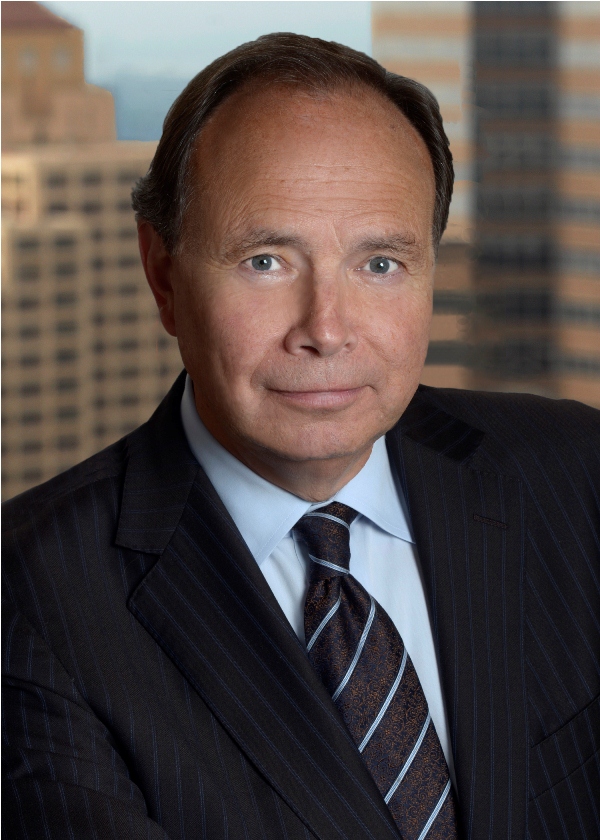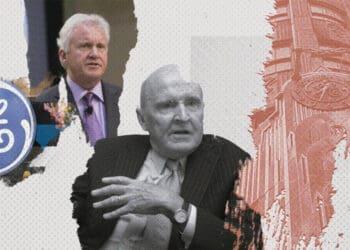co-written by William “Widge” Devaney
This is part one of a three-part series revisiting key FCPA enforcement actions and developments in 2013.
Summary
Foreign Corrupt Practices Act (FCPA) enforcement activity in 2013 was robust, with the DOJ and SEC bringing 31 new FCPA enforcement actions, exceeding 2012’s total of 25. Total penalties amounted to more than $720 million, the second-highest year on record.
Many trends from earlier years continued in 2013. International cooperation among law enforcement authorities remained strong. For example, 2013 saw the first coordinated enforcement action between U.S. and French authorities in a major foreign bribery case (U.S. v. Total S.A.). The DOJ also continued to make good on its promise to prosecute individuals, bringing or announcing 14 actions against individuals in 2013. And the DOJ and SEC seemed to continue their willingness to reward companies for their swift voluntary disclosure and ongoing cooperation, although the extent of that reward has been the subject of much debate.
There have also been some new developments this year. For example, the SEC entered into its first non-prosecution agreement with a corporate defendant over alleged FCPA misconduct (SEC v. Ralph Lauren Corporation).
Meanwhile, the courts remained busy with FCPA matters. In United States v. Esquenazi et al., the 11th Circuit heard oral argument in a challenge to the government’s definition of “foreign official.” In SEC v. Sharef and SEC v. Straub, the agency faced specific challenges to its expansive interpretation of FCPA jurisdiction, with differing results. Three FCPA-related shareholder derivative lawsuits that commenced in 2011 and 2012 were dismissed in 2013, but the shareholder lawsuit against Wal-Mart was allowed to proceed. And the Republic of Iraq’s lawsuit alleging, inter alia, that numerous multinational corporations violated the FCPA in connection with the UN’s Oil-for-Food Programme was also dismissed.
FCPA legislative reform efforts, on the other hand, seem to have stalled following the issuance of the DOJ’s and SEC’s FCPA Guidance in November 2012. Although industry groups continue to press the DOJ and SEC for clarity in “several areas of continuing concern for businesses seeking in good faith to comply with the FCPA,” the SEC and DOJ have expressed no intention to revisit the Guidance in the near future. However, legislative efforts to strengthen anti-corruption deterrence continue – an amendment is before the House of Representatives that would provide for automatic debarment of companies that have been convicted or charged with a variety of criminal and civil offenses, including violating the FCPA.
Finally, countries other than the United States continue to increase their anti-corruption enforcement. In Russia and Canada, existing anti-corruption regimes were strengthened through legislative action. Brazil enacted the new Clean Companies Act, which is designed to bring it in line with OECD standards and to complement existing anti-corruption laws in the Brazilian Criminal Code by creating criminal liability for individuals and civil and administrative liability for corporations found guilty of bribery. In China, authorities continue to crack down on bribery and corruption, most notably against pharmaceutical manufacturers.
Statistics
Corporate Defendants
- In 2013, the DOJ brought nine enforcement actions against corporate defendants, compared with 11 each year during 2012 and 2011.
- Meanwhile, all eight of the SEC’s enforcement actions in 2013 were against corporate defendants, compared with nine in 2012 and 14 in 2011.
Individual Defendants
- In 2013, the DOJ brought 14 enforcement actions against individual defendants, compared to only two in 2012 and 12 in 2011. The 14 DOJ enforcement actions against individuals in 2013 stemmed from five corporate investigations. Four of the defendants were charged or pleaded guilty before 2013, but their cases were under seal until 2013.
- The SEC brought no new enforcement actions against individual defendants in 2013, compared to four in 2012 and 12 in 2011.
- Additionally, the fact that a corporation settles an enforcement action with the DOJ or SEC does not mean that the potential for the prosecution of individuals has passed. In fact, the trend seems to be that individuals are charged well after the corporation has settled. For example, the DOJ’s prosecution of Peter Dubois, Jald Jensen, Bernd Kowalewski and Neal Uhl all stemmed from the Department’s earlier enforcement action against BizJet International Sales and Support, Inc., the individuals’ employer. Alain Riedo, a former Maxwell Technologies employee, was prosecuted two years after Maxwell entered into a deferred prosecution agreement. (See also Venable LLP’s FCPA Snapshot 2011, where we reported that DOJ had indicted eight individual defendants in U.S. v. Sharef et al. in 2011, nearly three years to the day after the related Siemens settlement.)
Fines/Penalties
- In 2013, the DOJ and SEC combined imposed more than $720 million in penalties – more than double the value of penalties imposed overall in 2012. This figure includes the penalties imposed against French oil and gas company Total, S.A. (DOJ: $245.2 million; SEC: $152.8 million) and Weatherford International, Ltd. (DOJ: $86.8 million; SEC: $65.6 million) – the fourth- and ninth-largest FCPA enforcement actions ever. Weatherford and Total accounted for three-quarters of all SEC and DOJ penalties in 2013.
- In 2012, the total amount of penalties imposed in FCPA cases was approximately $263.8 million, while in 2011, the total amount of sanctions was slightly more than $500 million. All penalties are significantly down from the cumulative DOJ/SEC total of approximately $1.7 billion in FCPA-related cases in 2010. Enforcement trends both before and after 2010 suggest that year may have been an outlier.
Industry Targets
- In the past, we have reported on the DOJ’s and SEC’s focus on the pharmaceutical and medical device industry. In 2013, there were only two such cases, perhaps indicating a maturation of anti-corruption compliance in that industry. However, the multiple investigations against pharmaceutical companies launched by the Chinese government (see page 9 infra) demonstrate that the anti-corruption enforcement risk for pharmaceutical companies remains high.
- The primary industries targeted in 2013 include:
- Oil & Gas (seven actions)
- Aviation (four actions)
- Energy (four actions) and
- Financial Services (four actions).
U.S.-based versus Non-U.S.-based Defendants
In 2013, approximately 14 defendants were U.S.-based entities or U.S. citizens, while approximately nine were non-U.S. based entities or non-U.S. citizens. The SEC and DOJ brought enforcement actions against non-U.S. based corporations, including Weatherford International and Total S.A. Individual non-U.S. citizen defendants include French citizen Frederic Cilins, charged with obstruction of justice in connection with an ongoing probe into a mining company seeking mining rights in Ghana, and Swiss citizen Alain Riedo, a former Maxwell Technologies employee accused of conspiring to violate the FCPA by bribing government officials in China to secure sales to state-owned electric-utility manufacturers. In addition, Venezuelan government official Maria de los Angeles Gonzalez de Hernandez (Gonzalez) was charged and pleaded guilty in connection with a bribery scheme to direct a state-owned economic development bank’s security-trading business to a U.S. broker-dealer. While the other defendants in that matter were charged with violating the FCPA, Gonzalez was charged with Travel Act violations predicated upon New York’s commercial bribery laws. The Travel Act makes it a federal offense to travel in interstate commerce or use interstate facilities to engage in “unlawful activity” as defined by state law, including bribery. The Travel Act allows the DOJ to bring charges not otherwise within the ambit of the FCPA because the FCPA does not apply to the foreign official bribe recipient and does not cover commercial bribery.
Corporate Resolutions
2013 saw some noteworthy resolutions against corporate entities, including French oil and gas giant Total S.A., Swiss oil services company Weatherford International and American lifestyle and clothing retailer Ralph Lauren Corporation. Certain trends can be discerned.
- United States v. Total S.A. is currently the fourth-largest FCPA settlement ever (a combined $398 million in sanctions imposed by the DOJ and SEC). According to the criminal information, Total S.A. paid at least $60 million in bribes in order to access Iranian oil and gas fields, where it allegedly made more than $150 million in profits. Purportedly, Total S.A. entered into allegedly sham consulting agreements with intermediaries for Iranian officials at state-owned oil and gas companies and characterized related payments as legitimate “business development expenses” in its books and records. Total S.A. was subject to enforcement actions by both agencies and is also being prosecuted in France. Total S.A.’s deferred-prosecution agreements with the DOJ requires them to appoint an independent compliance monitor for three years while implementing an enhanced corporate compliance program and enhanced internal controls. The SEC’s cease and desist order also refers to the independent compliance monitor and requires them to review and periodically report to the SEC on the company’s FCPA compliance. This is a break from the trend away from corporate monitors.
- The SEC and DOJ brought a total of three enforcement actions against Weatherford International, a Swiss oil services company, and its Bermudan subsidiary, Weatherford Services, Ltd. The actions focused on both FCPA violations and export control violations. Weatherford Services pleaded guilty to bribing foreign officials in African countries, including Angola. Another subsidiary was accused of committing fraud relating to the UN’s Oil-For-Food Programme in Iraq. According to the DOJ and SEC, Weatherford International knowingly failed to have adequate internal accounting controls, permitting the conduct by its subsidiaries to take place. Weatherford Services employees allegedly established joint ventures with government officials in Africa in order to receive contracts and information about competitors’ pricing. Another subsidiary paid almost $1.5 million in kickbacks to the Iraqi government to receive contracts under the Oil-For-Food Programme and falsely recorded the payments as legitimate expenses. The transactions reportedly resulted in almost $54.5 million in profits for Weatherford International. The export control violations related to deals with Cuba, Iran, Sudan and Syria. The total penalties for both sets of violations were more than $252 million, with the FCPA penalties accounting for approximately $152 million of the total. Weatherford International’s deferred prosecution agreement with the DOJ is for a term of three years. Weatherford also agreed to retain an independent corporate compliance monitor for 18 months and to self-report to the SEC for 18 months. The DOJ noted Weatherford’s cooperation and remediation efforts; however, the SEC complaint notes that before the cooperation began, Weatherford and its employees allegedly compromised the investigation by failing to secure certain documents and allowing potentially complicit employees to participate in the document collection.
- Also in 2013, the SEC entered into its first FCPA-related non-prosecution agreement with American clothing retailer Ralph Lauren Corporation (RLC). According to the SEC, RLC’s Argentine subsidiary paid bribes to Argentine government officials as part of a scheme to import RLC products into Argentina but avoid necessary paperwork. Allegedly, these bribes occurred during a period when RLC lacked meaningful anti-corruption compliance and internal control mechanisms, and the payments in question went unnoticed by RLC until it began a worldwide process of implementing an enhanced compliance program. In conjunction with the non-prosecution agreement, the SEC publicly praised RLC for its “significant remedial measures” and “ongoing cooperation,” which included:
- Implementing a comprehensive new compliance program worldwide
- Terminating employment and business relationships with all individuals involved in the wrongdoing
- Strengthening internal controls and procedures for third-party due diligence
- Reporting the preliminary findings of an internal investigation to the SEC within two weeks of discovering the illegal payments
- Voluntarily and expeditiously producing relevant documents to the SEC
- Providing English-language translations of important documents to the SEC
- Summarizing witness interviews conducted overseas
- Making overseas witnesses available for SEC interviews, and bringing those witnesses to the U.S.
In a related action, the DOJ also entered into a non-prosecution agreement with RLC. In all, RLC paid sanctions totaling $1.6 million. This amount is relatively modest compared to other enforcement actions in the past – likely due to RLC’s “extensive, thorough and timely cooperation.” However, some critics have questioned whether a company that undertakes a compliance audit in an effort to bolster its anti-corruption controls discovers and voluntarily discloses FCPA issues should have been sanctioned at all, especially when the payments were not in connection with a specific business transaction.
__________________
About the Authors
 Jan Handzlik is a litigation partner in Venable’s Securities Enforcement & White-Collar Defense Practice Group, and co-chair of the firm’s Foreign Corrupt Practices Act (FCPA) and Anti-Corruption practice.
Jan Handzlik is a litigation partner in Venable’s Securities Enforcement & White-Collar Defense Practice Group, and co-chair of the firm’s Foreign Corrupt Practices Act (FCPA) and Anti-Corruption practice.
 William “Widge” Devaney is co-chair of Venable’s Foreign Corrupt Practices Act (FCPA) and Anti-Corruption practice.
William “Widge” Devaney is co-chair of Venable’s Foreign Corrupt Practices Act (FCPA) and Anti-Corruption practice.














